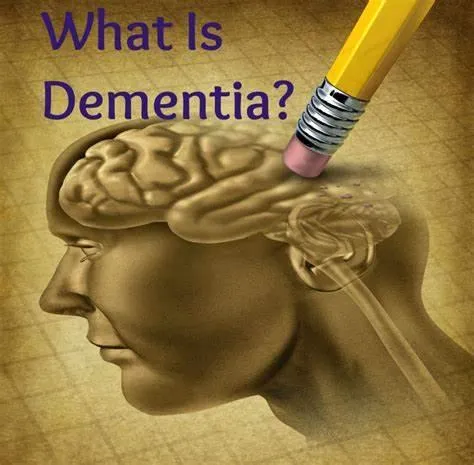
What is Dementia?

As we age, it’s natural to experience changes in memory and cognitive function. Misplacing keys or forgetting someone’s name occasionally might be considered typical signs of aging. However, when these changes become more pronounced and start to interfere with daily life, it could be indicative of a more serious condition known as dementia.
What is Dementia?
Dementia is not a specific disease but rather an umbrella term used to describe a decline in cognitive function severe enough to interfere with daily life. It is characterized by a combination of symptoms that include memory loss, impaired judgment, difficulties with communication, and changes in mood and behavior. Alzheimer’s disease is the most common form of dementia, accounting for approximately 60-80% of cases, but there are several other types as well, including vascular dementia, Lewy body dementia, and frontotemporal dementia.
Distinguishing Dementia from Normal Aging
While some degree of cognitive decline is anormal part of aging, dementia represents a more significant and progressive decline that goes beyond what is considered typical. Here are some key differences between dementia and normal aging:
Frequency and Severity of Memory Loss:
While occasional forgetfulness, such as misplacing items or forgetting appointments, is common with aging, individuals with dementia experience more frequent and severe memory loss that interferes with daily functioning. They may forget recently learned information, repeat themselves frequently, or have difficulty following conversations.
Impact on Daily Life:
Normal age-related memory changes typically do not significantly interfere with daily activities or independence. In contrast, dementia symptoms progressively worsen over time and can impair the ability to perform routine tasks such as cooking, managing fi nances, or remembering important dates and events.
Difficulty with Problem-Solving and Planning:
While older adults may take longer to process information or solve problems, those with dementia often struggle with more complex tasks requiring planning, organization, and judgment. They may have difficulty following instructions, managing finances, or making decisions.
Changes in Personality and Behavior:
While personality may evolve over time, drastic changes in personality or behavior are not considered a normal part of aging. Individuals with dementia may exhibit mood swings, agitation, apathy, or socially inappropriate behavior that is out of character for them.
Progression of Symptoms:
Normal age-related cognitive changes tend to progress slowly and may remain relatively stable overtime. In contrast, dementia symptoms worsen gradually, leading to a decline in cognitive function and increasing dependency on others for care and support.
Seeking Help and Support
If you or a loved one is experiencing concerning cognitive symptoms, it’s essential to seek medical evaluation and support from a healthcare professional. While there is currently no cure for dementia, early diagnosis and intervention can help manage symptoms, improve quality of life, and provide access to support services and resources for individuals and their families.
In conclusion, while some cognitive changes are a natural part of aging, dementia represents a more severe and progressive decline in cognitive function that significantly impacts daily life. By understanding the differences between normal aging and dementia, individuals and families can better recognize when to seek help and support for cognitive concerns.
Remember, you’re not alone on this journey. Reach out to healthcare professionals, support groups, and community resources for guidance and assistance every step of the way.
